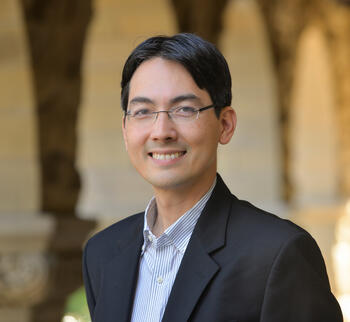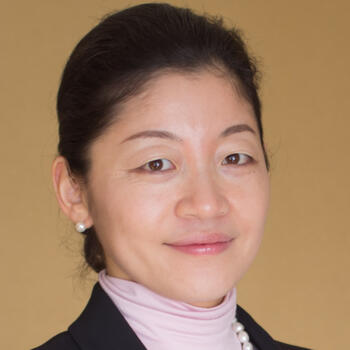The Political Economy of the Abe Government and Abenomics Reforms: Innovation, Agriculture, and Energy Policy
The Political Economy of the Abe Government and Abenomics Reforms: Innovation, Agriculture, and Energy Policy
Tuesday, February 9, 20214:00 PM - 5:15 PM (Pacific)
Via Zoom Webinar.
Register at: https://bit.ly/3t6AfRu
This event is being held virtually via Zoom. Please register for the webinar via the following link: https://bit.ly/3t6AfRu
This event is part of Shorenstein APARC's winter webinar series "Asian Politics and Policy in a Time of Uncertainty."
The government of Abe Shinzo, which ruled Japan from 2012 to 2020, represents an important turning point in Japanese politics and political economy. Abe became the longest-serving prime minister in Japanese history, reversing a trend of short-lived leaders. His government not only stands out for its longevity, but also for its policies: Abe implemented a variety of significant changes, among the most important being a series of economic reforms to reinvigorate Japan’s economy under the banner of “Abenomics.” Drawing on a recently published book co-edited by Takeo Hoshi and Phillip Lipscy, The Political Economy of the Abe Government and Abenomics Reforms and featuring the authors of the relevant chapters, this panel will examine three areas of structural reform that were prioritized under Abenomics: innovation, agriculture, and energy. Moderated by Kiyoteru Tsutsui, the Director of the Japan Program, the panel will also consider the implications of these reforms for the post-Abe era that began with the Suga government in September 2020.
SPEAKERS
 Takeo Hoshi (University of Tokyo), is Professor of Economics at the University of Tokyo. His research area includes corporate finance, banking, monetary policy and the Japanese economy. Hoshi is also Co-Chairman of the Academic Board of the Center for Industrial Development and Environmental Governance (Tsinghua University). His past positions include Henri and Tomoye Takahashi Senior Fellow at the Freeman Spogli Institute for International Studies at Stanford University and Pacific Economic Cooperation Professor in International Economic Relations at University of California, San Diego. He received the 2015 Japanese Bankers Academic Research Promotion Foundation Award, the 2011 Reischauer International Education Award of Japan Society of San Diego and Tijuana, the 2006 Enjoji Jiro Memorial Prize of Nihon Keizai Shimbun, and the 2005 Japan Economic Association-Nakahara Prize. His book Corporate Financing and Governance in Japan: The Road to the Future (MIT Press, 2001) co-authored with Anil Kashyap received the Nikkei Award for the Best Economics Books. He co-authored The Japanese Economy (MIT Press, 2020) with Takatoshi Ito. His book on the political economy of the Abe administration co-edited with Phillip Lipscy is published from Cambridge University Press in 2021. Other publications include “Will the U.S. and Europe Avoid a Lost Decade? Lessons from Japan’s Post Crisis Experience” (Joint with Anil K Kashyap), IMF Economic Review, 2015; and “Zombie Lending and Depressed Restructuring in Japan” (Joint with Ricardo Caballero and Anil Kashyap), American Economic Review, December 2008. Hoshi received his B.A. from the University of Tokyo in 1983, and a Ph.D. in Economics from the Massachusetts Institute of Technology in 1988.
Takeo Hoshi (University of Tokyo), is Professor of Economics at the University of Tokyo. His research area includes corporate finance, banking, monetary policy and the Japanese economy. Hoshi is also Co-Chairman of the Academic Board of the Center for Industrial Development and Environmental Governance (Tsinghua University). His past positions include Henri and Tomoye Takahashi Senior Fellow at the Freeman Spogli Institute for International Studies at Stanford University and Pacific Economic Cooperation Professor in International Economic Relations at University of California, San Diego. He received the 2015 Japanese Bankers Academic Research Promotion Foundation Award, the 2011 Reischauer International Education Award of Japan Society of San Diego and Tijuana, the 2006 Enjoji Jiro Memorial Prize of Nihon Keizai Shimbun, and the 2005 Japan Economic Association-Nakahara Prize. His book Corporate Financing and Governance in Japan: The Road to the Future (MIT Press, 2001) co-authored with Anil Kashyap received the Nikkei Award for the Best Economics Books. He co-authored The Japanese Economy (MIT Press, 2020) with Takatoshi Ito. His book on the political economy of the Abe administration co-edited with Phillip Lipscy is published from Cambridge University Press in 2021. Other publications include “Will the U.S. and Europe Avoid a Lost Decade? Lessons from Japan’s Post Crisis Experience” (Joint with Anil K Kashyap), IMF Economic Review, 2015; and “Zombie Lending and Depressed Restructuring in Japan” (Joint with Ricardo Caballero and Anil Kashyap), American Economic Review, December 2008. Hoshi received his B.A. from the University of Tokyo in 1983, and a Ph.D. in Economics from the Massachusetts Institute of Technology in 1988.



Patricia L. Maclachlan (University of Texas), received her PhD in comparative politics from Columbia University in 1996 and is now Professor of Government and the Mitsubishi Heavy Industries Professor of Japanese Studies at the University of Texas at Austin. Her publications include Consumer Politics in Postwar Japan: The Institutional Boundaries of Citizen Activism (Columbia University Press, 2002), The Ambivalent Consumer: Questioning Consumption in East Asia and the West (Cornell University Press, 2006), which she co-edited with Sheldon Garon, and The People’s Post Office: The History and Politics of the Japanese Postal System, 1871-2010 (Harvard University East Asia Center, 2011). Her current research focuses on the political economy of Japanese agriculture and the reform of the agricultural cooperative system; her book on the topic, co-authored with Kay Shimizu, is forthcoming from Cornell University Press. Maclachlan currently serves on the Japan-U.S. Friendship Commission and the United States-Japan Conference on Cultural and Educational Interchange (CULCON), the American Advisory Committee of the Japan Foundation, and the editorial board and board of trustees of the Journal of Japanese Studies.

Kay Shimizu (University of Pittsburgh). Shimizu's research addresses institutional design and their effects on economic governance with a special interest in central local relations, property rights, and the digital transformation. Her publications include Political Change in Japan: Electoral Behavior, Party Realignment, and the Koizumi Reforms (coedited with Steven R. Reed and Kenneth McElwain) as well as articles in Socio-Economic Review, Journal of East Asian Studies, Current History, and Social Science Japan Journal. She is the author, with Patricia L. Maclachlan, of a forthcoming book on agricultural cooperative reform from Cornell University Press. Shimizu received her Ph.D. in political science from Stanford University. She contributes regularly to the public discourse on international relations and the political economy of Asia and has been a fellow at the Mike and Maureen Mansfield Foundation, the National Committee on U.S. China Relations, and the U.S.-Japan Foundation.

MODERATORS

Kiyoteru Tsutsui (Stanford University), is Henri H. and Tomoye Takahashi Professor and Senior Fellow in Japanese Studies at the Walter H. Shorenstein Asia-Pacific Research Center at Stanford University, where he is also Director of the Japan Program, a Senior Fellow of the Freeman Spogli Institute for International Studies, and a Professor of Sociology. He is the author of Rights Make Might: Global Human Rights and Minority Social Movements in Japan (Oxford University Press, 2018), co-editor of Corporate Responsibility in a Globalizing World (Oxford University Press, 2016) and co-editor of The Courteous Power: Japan and Southeast Asia in the Indo-Pacific Era (University of Michigan Press, forthcoming 2021).
